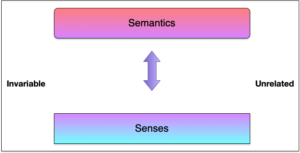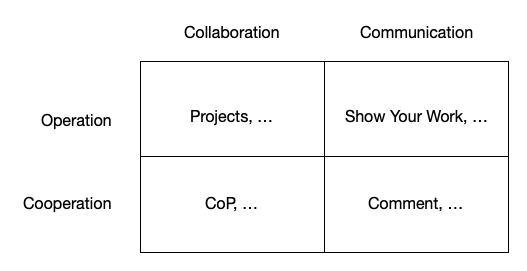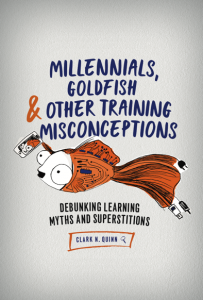I’ve talked before about the power of ritual, but while powerful, it also seemed piecemeal. That is, there were lots of hints, but not a coherent theory. That has now changed. I recently found a paper by Nicholas Hobson & colleagues (Schroeder, Risen, Xylagatas, & Inzlicht; warning, PDF) titled The Psychology of Rituals that creates an integrated framework. And while my take simplifies it down, I found it interesting.
 At core, what the model suggests is that there are two components that are linked together. The first element are things that involve the senses. The second element are the semantics we’re looking to create allegiance and adherence too. And there are important elements about this relationship.
At core, what the model suggests is that there are two components that are linked together. The first element are things that involve the senses. The second element are the semantics we’re looking to create allegiance and adherence too. And there are important elements about this relationship.
There are a number of elements that are on tap for involving the senses. Certain movements, sounds, and words said or to be spoken can be used. There can also be food, drink, smells, and more. Objects also. Timing is an element; at the micro level of things in order, and at the macro level of the triggers for the ritual.
Semantics come, of course, from your needs. It can be about things you want people to believe, or a set of values you want people to subscribe to. Or, of course, both. From the design purpose, I’d suggest it’s about agreeing to be a member of a community of practice; to undertake certain actions when appropriate, and to uphold certain values.
Interestingly, according to their model, the relationship between the two is effectively arbitrary. That is, there is no intrinsic relationship between what you’re signifying, and how you do so. Rituals are about the practices. Which means you could in theory do just about anything to make the relationship.
The other thing is that the ritual has to be invariable in its aspects. You define it, and so do it. Note that the execution can vary considerably; from several times a day to upon certain triggering conditions. So, for instance, having completed a course, or before engaging in certain activities.
While such a definition gives us lots of freedom, it also doesn’t necessarily serve as a guide for design. Still, thinking about it in this way does suggest the utility in developing deeply held beliefs and appropriately practiced behaviors. At least, that’s how I see it. You?


